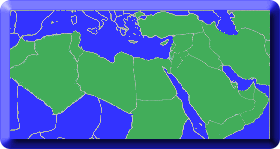
Topics in Middle Eastern and North African Economies
An economic analysis of sustainability of a potential GCC economic and monetary union during 2005-2014
Document Type
Article
Publication Date
7-11-2016
Journal Title
World Journal of Entrepreneurship, Management and Sustainable Development
Volume
12
Issue
3
Publisher
Emerald Insight Group Publishing Limited
Abstract
Gulf Cooperation Council (GCC) was set up in 1981 between Bahrain, Oman, Qatar, Saudi Arabia, United Arab Emirates and Kuwait for strengthening cooperation and economic development in the region. The GCC has made strides towards economic consolidation by forming a customs union and a common market. The long-term vision is to create an Economic and Monetary Union (EMU) with a single currency. Progress towards the EMU has been slow and the recent oil price plunge has led to concerns regarding sustainable growth of member countries due to their significant dependence on oil and lack of diversification. The purpose of this paper is to analyse the scope of an EMU in the GCC against the backdrop of current oil crisis and examine sustainability of such a union. The paper studies convergence criteria similar to the ones followed by the accession countries of the European EMU in the 1990s preceding the introduction of the single currency Euro.
Identifier
ISSN: 2042-5961
Recommended Citation
Ganguli, Subhadra, "An economic analysis of sustainability of a potential GCC economic and monetary union during 2005-2014". Topics in Middle Eastern and North African Economies, electronic journal, 12, 3, Emerald Insight Group Publishing Limited, 2016, http://www.luc.edu/orgs/meea/



Comments
This is also listed in Topics in Middle Eastern and North African Economies Volume 18, Number 1, May 2016.